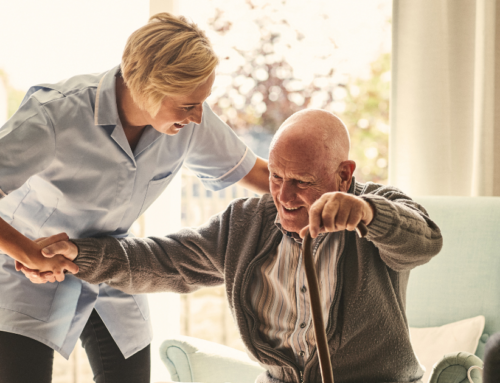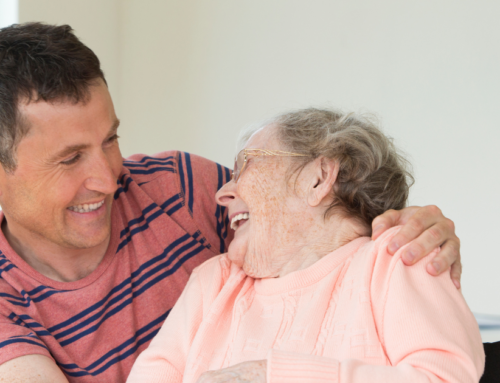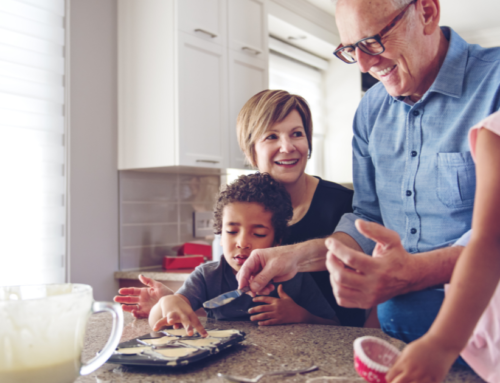Your aging father lives alone 90 miles away, and his health is in decline. Your retired older sister is battling cancer right now, but her home is all the way across the country. How can you make sure that your loved ones receive the care they need when you live so far away? Serving as an informal caregiver from a long distance can often lead to feelings of guilt and frustration. If you feel guilty right now, here are some tips to make the most of a less-than-ideal situation.
What is a “Long-Distance” Caregiver?
If you live an hour or more away from a person who needs care, you are a long-distance caregiver. Long-distance caregiving can take many forms, from helping with money management and arranging for in-home care to providing respite care for a primary caregiver and planning for emergencies. On the other hand, being a long-distance caregiver can often trigger negative feelings that include guilt.
Your Long-Distance Caregiving Guide
Providing much-needed care from a distance is all about maintaining your loved one’s quality of life. Ensuring long-distance caregiving success is possible by taking these five steps:
Make the most of in-person visits.
Whether it’s once a month or twice a year, visit your loved one whenever you can. Before arriving, plan how to make your time together more enriching. For example, if Mom has dementia, bring old photo albums along so that you can both reminisce.
Incorporate your loved one’s hobbies and interests into your visit as well. If Dad loved to play sports, bring a soft football for him to hold, watch part of a game together, or show him photos of your kids in their uniforms. Just because you come to visit doesn’t mean your loved one has to deviate from their regular schedule. Sharing a meal with them or joining them for a walk at their favorite park are impactful ways to show them how much you care.
Schedule a care team meeting.
While there, don’t forget to set aside some time to meet with their caregivers, whether they are volunteers or paid professionals. Take advantage of this face time to get a progress report on your loved one’s health, eating habits, social life, personality changes, and more. Spend time reviewing their care plan and don’t hesitate to provide input to ensure that your loved one’s needs are met.
Use technology to stay connected.
There are many ways to stay in touch with your loved one and their caregivers between visits. Although phone calls, letters, and emails are an option, advances in newer technology now make communicating from afar more convenient. If your senior doesn’t have a smartphone, tablet, or computer, buy them one. Use technologies like Zoom, FaceTime, and other video conferencing platforms to communicate often, as doing so will help you both sleep better at night.
Reevaluate your options.
If something seems to be lacking in your loved one’s care, take time to reevaluate your options. If informal caregivers and community-based senior programs aren’t meeting their needs, consider hiring a professional in-home caregiver. A geriatric care manager can also be an invaluable resource while making in-person visits on your behalf.
Lose the caregiver guilt.
As a long-distance caregiver, always remember that your best effort is enough. Although you may not be able to attend every doctor’s appointment or visit for each holiday, you’re doing the best you can to help coordinate your loved one’s care and ensure their quality of life. Conversely, guilt does not serve a useful purpose. Knowing that you are honestly doing everything you can to ensure your loved one’s health and happiness will allow you to cast those negative feelings to the curb for good!
Quality In-Home Care that Supports Seniors and Families
Caring for an aging loved one from a distance can be frustrating. At New Wave Home Care, we’ve been helping families in Southern California keep aging loved ones safe and comfortable in their own homes for 10+ years now. As a licensed home care provider, we support clients and their families with personalized in-home solutions like personal care, transitional care, respite care, dementia and Alzheimer’s care, and hospice support.
When you choose New Wave Home Care in Pasadena, you can rest assured that your loved one is getting the specialized care they need from a trusted, friendly caregiver. To learn more now or schedule a FREE in-home assessment for a senior in the greater Los Angeles area, please visit us at www.newwavehomecare.com.



